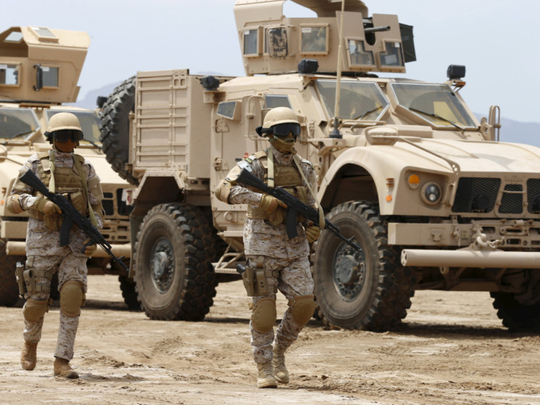
Russia’s military intervention in the Syrian conflict has brought to the fore one more time the discussion about the lack of an effective Arab mechanism to manage and solve conflicts; be that inside states or between them. Europe, for example, has the Organisation for Security and Cooperation in Europe (OSCE); Asia has the Association of Southeast Asian Nations (Asean); Africa has the African Union (AU); and so on. Clearly, the Arab world stands outside this world-wide trend. This might partly explain why the Arab world has been unable to deal with its own conflicts and security problems and has hence been subject to foreign intervention more than many other parts of the world.
To be fair, however, the idea of creating some sort of a regional approach to enhanced cooperation and security in the Arab world — to prevent wars, build and keep peace, and manage conflicts, has been contemplated fairly early — indeed since the establishment of the Arab League in 1945. Yet, the issue gained increasing interest in recent years; at least amongst experts and academics. The unpredictability and instability of the region’s security dynamics have led to several wars between regional powers, occupations, the proliferation and even use of weapons of mass destruction (WMD), foreign military interventions and to growing problems of terrorism and weak/failed states. The US invasion of Iraq and its repercussions made the issue more pressing. The Russian military intervention in the Syrian civil war makes the issue even more important.
The first Arab attempt to establish a collective security system came after the 1948 Arab-Israeli war. Dr Abdul Rahman Azzam, the first secretary-general of the Arab league, suggested an Arab defence pact. It was approved by all member states of the Arab League in 1950. The pact was invoked with mixed results in three occasions: During the Tripartite invasion of Egypt in 1956, the 1967 Arab-Israeli war and more successfully during the 1973 war.
Conflicting interests and Cold-War alignment undermined the Arab defence pact and hindered all efforts to revive it. During the Iran-Iraq war, Syria, Libya and to an extent Algeria sided with Iran against Iraq; while the Gulf states, Egypt and Jordan supported Iraq. The Iraqi invasion of Kuwait in 1991 shattered the Arab world and ended any attempt to establish a collective Arab security regime.
Apart from an attempt by the Gulf Cooperation Council countries to establish a regional security system in the Arabian Peninsula, there has been one official attempt to develop a regional approach to security and arms control negotiation; the Arms Control and Regional Security Working Group (ACRS) of the Multilateral Track of the 1991 Madrid peace process. The Group produced some results, but persistent pressure from the United States to include Israel led to its failure.
After the US invasion of Iraq in 2003, several papers have been published on the idea of a new approach to regional security and co-operation in the region and several projects have been launched to study the possibility of creating a conflict management mechanism. However, there are, as yet, no conclusive models of what such a system might look like. Some argue for a model which would stress a region-wide approach to Middle East security. Others argue for an approach which would stress a sub-regional model, at least in the first instance, beginning in the Gulf.
Moreover, there are considerable differences between the kind of security which any future system might try to achieve. Some argue for a security system based on the notion of collective defence, which would see a few regional countries banding together, often with an outside power, to deter aggression by other regional countries. Others are interested in more co-operative security concepts, which would stress the idea that all regional states should come together to develop a set of rules of regional conduct and then should enter into an ongoing process of dialogue to cooperatively give life to those rules. These are two very different concepts of regional security. By way of examples from other regions, collective defence models follow the ideas inherent in such regional organisations as Nato in Europe. Cooperative security models are more akin to such bodies as the OSCE, also in Europe.
Given the enduring divisions of the Arab world and its alignments, these differences are unlikely to be resolved any time soon. The bleak future of the region’s security should, however, encourage Arab states to approach this issue in a more pragmatic manner. The alternative is continuing foreign incursions, persistent occupations and may be the disappearance of complete states and entities. Syria must serve as a prime example for the absence of an Arab conflict management mechanism.
Dr Marwan Kabalan is a lecturer in media and international relations, Faculty of Political Science and Media, Damascus University, Syria. He can be contacted at: makabalan@gulfnews.com










